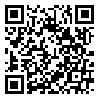Volume 6, Issue 3 (9-2012)
2012, 6(3): 10-18 |
Back to browse issues page
Download citation:
BibTeX | RIS | EndNote | Medlars | ProCite | Reference Manager | RefWorks
Send citation to:



BibTeX | RIS | EndNote | Medlars | ProCite | Reference Manager | RefWorks
Send citation to:
Ghahvehchi. F, Fathi-Ashtiani A, Azadfallah P. The Relationship between Meta Cognitive Beliefs and Students’ Test Anxiety Coping Styles, Given the Role of Ambivalent Attachment. Research in psychological health 2012; 6 (3) :10-18
URL: http://rph.khu.ac.ir/article-1-1523-en.html
URL: http://rph.khu.ac.ir/article-1-1523-en.html
1- , f.ghahvehchi@gmail.com
Abstract: (13656 Views)
This
study was conducted to examine the relationship between meta cognitive beliefs
and female students’ test anxiety coping styles by considering the role of ambivalent attachment. In a correlative study, 202 female students in the third grade of Yazd’s
middle school were selected by random cluster sampling and then completed the
Spielberger Anxiety questionnaire, Meta cognitive Beliefs
Questionnaire and Collins and Raid attachment questionnaire. Pearson's correlation test and regression
analysis were used to analyze the data. The present study showed that there was a positive relationship between
test anxiety and cognitive beliefs, avoidant coping style, emotional-based coping style and ambivalent attachment. Also there was direct and significant relationship between meta cognitive beliefs and
avoidant coping style, issue-oriented
copying style, emotional-based coping style and ambivalent
attachment. Emotional coping styles were also
positively and significantly oriented with ambivalent attachment. Results of the step by step regression analysis
showed that meta cognitive beliefs explained 27% of the variance the test anxiety by
themselves, while the coping style along with meta cognitive
beliefs explained approximately 32% of the variance of test anxiety and if
ambivalent attachment added to meta cognitive beliefs and
coping style, 34% of the variance of test anxiety can be explained
approximately. Due to the effectiveness of the proper use of coping styles in dealing with the test anxiety, the
necessary trainings in this area can prevent
the students from being challenged by the test anxiety which could have many
negative effects on their performance. Also parents as
those having a role in the formation of their children’s attachment should
undergo necessary training.
study was conducted to examine the relationship between meta cognitive beliefs
and female students’ test anxiety coping styles by considering the role of ambivalent attachment. In a correlative study, 202 female students in the third grade of Yazd’s
middle school were selected by random cluster sampling and then completed the
Spielberger Anxiety questionnaire, Meta cognitive Beliefs
Questionnaire and Collins and Raid attachment questionnaire. Pearson's correlation test and regression
analysis were used to analyze the data. The present study showed that there was a positive relationship between
test anxiety and cognitive beliefs, avoidant coping style, emotional-based coping style and ambivalent attachment. Also there was direct and significant relationship between meta cognitive beliefs and
avoidant coping style, issue-oriented
copying style, emotional-based coping style and ambivalent
attachment. Emotional coping styles were also
positively and significantly oriented with ambivalent attachment. Results of the step by step regression analysis
showed that meta cognitive beliefs explained 27% of the variance the test anxiety by
themselves, while the coping style along with meta cognitive
beliefs explained approximately 32% of the variance of test anxiety and if
ambivalent attachment added to meta cognitive beliefs and
coping style, 34% of the variance of test anxiety can be explained
approximately. Due to the effectiveness of the proper use of coping styles in dealing with the test anxiety, the
necessary trainings in this area can prevent
the students from being challenged by the test anxiety which could have many
negative effects on their performance. Also parents as
those having a role in the formation of their children’s attachment should
undergo necessary training.
Type of Study: Research |
Published: 2012/09/15
Published: 2012/09/15
Send email to the article author
| Rights and permissions | |
 | This work is licensed under a Creative Commons Attribution-NonCommercial 4.0 International License. |





